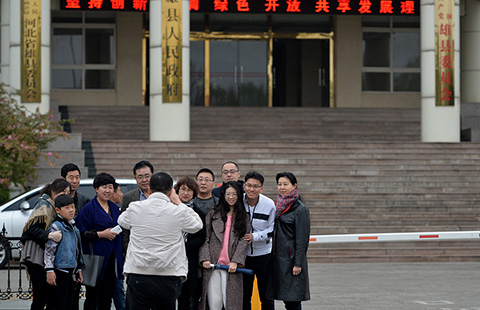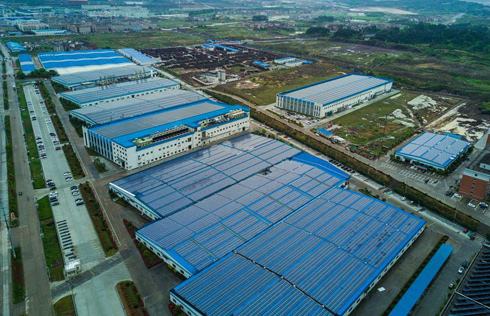Foldable e-bikes hit roads amid China's bike-sharing frenzy
HANGZHOU — As bike-sharing takes China by storm, one company has entered the industry with a new product -- the foldable electric bike.
Zhejiang Linju Smart Technology Co, the electric bike's maker, said it has released 400 e-bikes since March in the city of Jinhua, Zhejiang province, where the company is based.
An e-bike can go up to 20 kilometers per hour and, when parked, can be folded to cover as little space as a piece of A4 paper, according to the company.
The e-bikes need to be parked at designated bays where they can be charged, and batteries can be fully charged in just 20 minutes, the company said.
To use the bikes, one has to press a button at the station and then scan a QR code with a mobile phone. It costs 2 yuan (about 30 cents) for an hour, and 20 yuan for a day. No deposit is needed.
Since last year, a flood of bikes has returned to the streets of China -- formerly known as the Bicycle Kingdom -- thanks to the development of Internet technology enabling riders to unlock and drop off public bikes with their mobile phones.
Bike-sharing has been welcomed in many Chinese cities beset by urban ills such as pollution and traffic gridlock. But people who are used to riding electric bikes, particularly in the south of the country, have hoped to see e-bikes shared too.
"I have been using the e-bike sharing service since the first day it was launched. It takes more than 20 minutes to reach the office, about six kilometers away," said Li Jian, a local resident. "It gives me a comfortable ride, even on bumpy roads."
"We will put 40,000 e-bikes on the streets of Jinhua by September 2018," said Chen Qiutian, general manager of the company, citing an agreement it signed with the government.
"There will be e-bikes in the city center and most residential communities, with a station every 150 meters," Chen said.
Each e-bike is equipped with a GPS transmitter to guard against theft.
The company has set a long-term goal to release e-bikes in the provincial capital of Hangzhou this year, before it expands nationwide. The target is 150 million e-bikes in 20 cities by 2021.
















